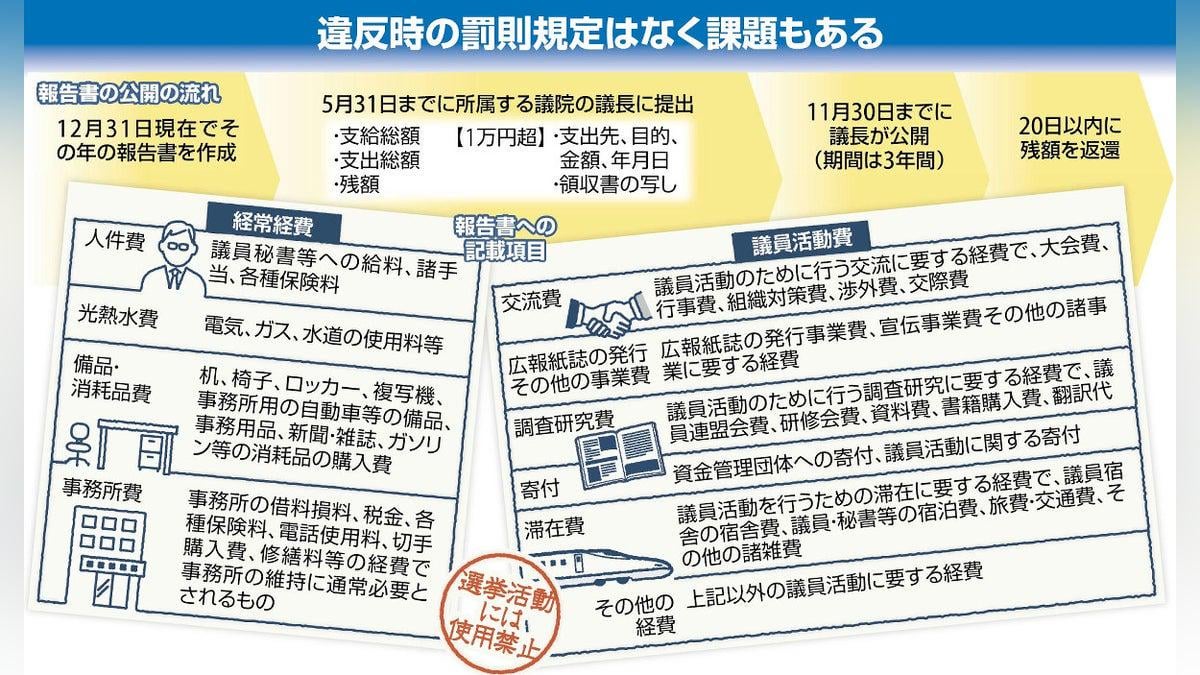
Just parts of the paragraphs in the article.
In addition to their monthly annual salary of approximately 1.3 million yen, Diet members are paid 1 million yen each month for research, public relations, and accommodation expenses (formerly document, communication, and transportation accommodation expenses, tax-exempt). Beginning in August, lawmakers are now required to disclose how they use this allowance when spending over 10,000 yen. With public scrutiny intensifying over “money and politics,” the question is whether greater transparency will help restore trust in politics.
The former “document and communication expenses” were established by law and funded by taxpayers. They were paid in full with no obligation to disclose their use or return unspent funds, leading critics to call them lawmakers’ “second salary” and raising concerns over a lack of transparency.
The allowance traces back to 1947 as “communication expenses” and “residential allowances” during parliamentary sessions. Over the years, it was renamed and expanded, becoming the former document and communication allowance in 1993.
The push for reform came after the October 31, 2021 lower house election, when around 120 first-time or returning lawmakers received the full monthly allowance despite only serving for one day that month. A newly elected member of Nippon Ishin (Japan Innovation Party) criticized this as “unthinkable in normal society,” prompting all parties to begin reviewing the system.
In April 2022, the allowance was changed from a flat monthly payment to a pro-rated daily system. It was renamed Research, Public Relations, and Residential Expenses, with permissible uses broadened to include research, outreach, communication with citizens, and other parliamentary activities.
However, discussions on transparency stalled. In May 2024, Prime Minister Fumio Kishida (LDP president) and Ishin leader Nobuyuki Baba agreed to legislate reforms, though no timeline was set.
In the past, questionable spending included overseas investments, rent for family residences, and purchases of home appliances.
The new rules specify allowable categories, such as staff salaries or book purchases. Yet in practice, lawmakers can argue almost any expense falls under “parliamentary activity,” and no penalties exist for improper use.
Donations to lawmakers’ political funding organizations are also permitted. Lawmakers must record such spending in their reports, but distinguishing between political activity and election campaigning is often difficult, making full accountability elusive.
By contrast, many municipalities require local assembly members to disclose receipts for political activity expenses from the very first yen. If inappropriate spending is discovered, residents can demand repayment.
by MagazineKey4532
